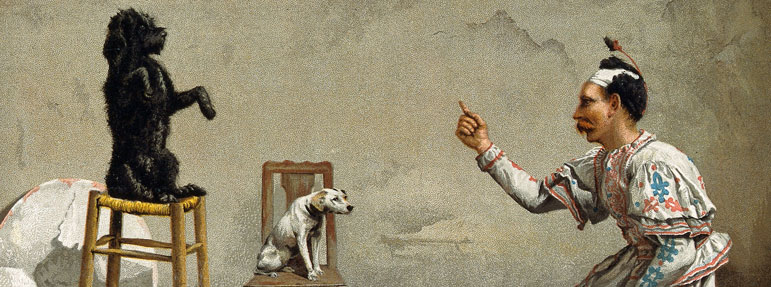It means it is difficult to make someone change the way they do something when they have been doing it the same way for a long time. I tried helping my friend’s dad to learn how to operate a computer, but I guess you can’t teach an old dog new tricks, because he just couldn’t seem to understand what I was explaining to him.

Compulsory education “The boy’s own paper”. Painted by C. MacIver Grierson (1889) Credit: Wellcome Library, London [CC BY 4.0]
This must be one of the oldest proverbial sayings in the language. There are many early citations of it and many of those refer to it as an “old saying”. The earliest example of it in print is in John Fitzherbert’s “The Boke Of Husbandry” (1534), probably in the variant form “an old dog will learn no tricks”. It is also appeared in John Heywood’s 1546 proverb collection. One source says the proverb was first recorded in 1636 and I assume this means in the exact words of its present form.
A great quote from Henry Ford (the founder of the Ford Motor Company) is “Anyone who stops learning is old, whether 20 or 80.” Too often people get to a certain stage in their life and adopt the attitude that they cannot learn anymore. “I’m just too old for this” is a common mantra amongst those who are facing a new learning challenge but choosing to adopt a negative and ultimately disempowering mindset.
Wrong translation
> On ne peut pas appendre à un vieux chien des nouveaux tours
The correct French idiom
> Ce n’est pas à un vieux singe que l’on apprend à faire des grimaces